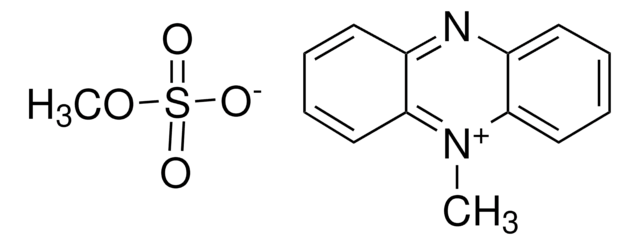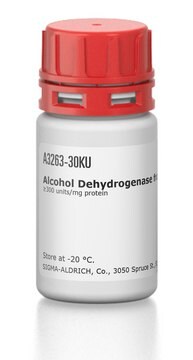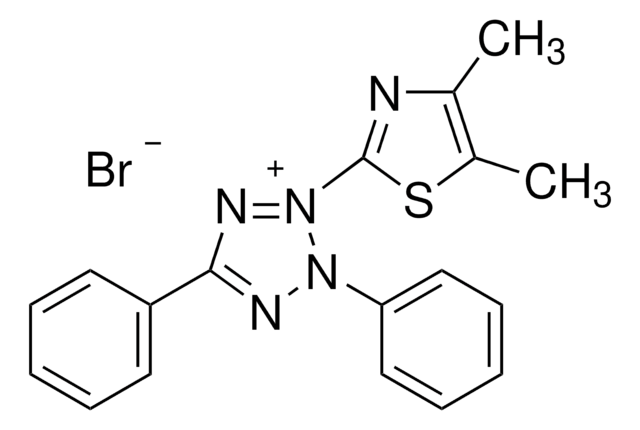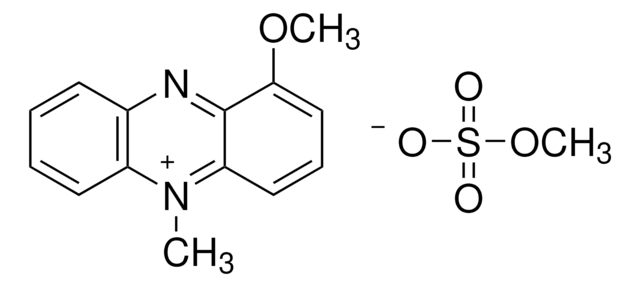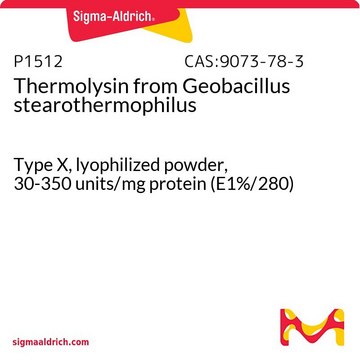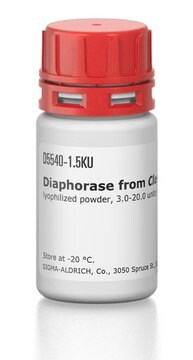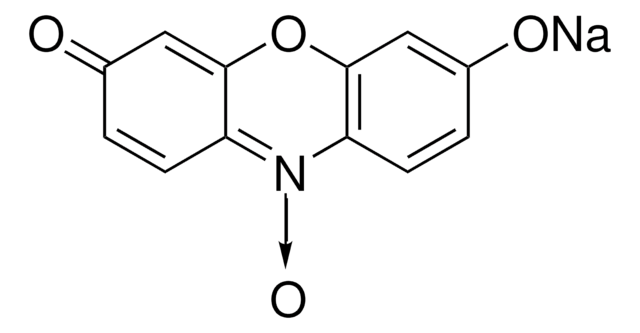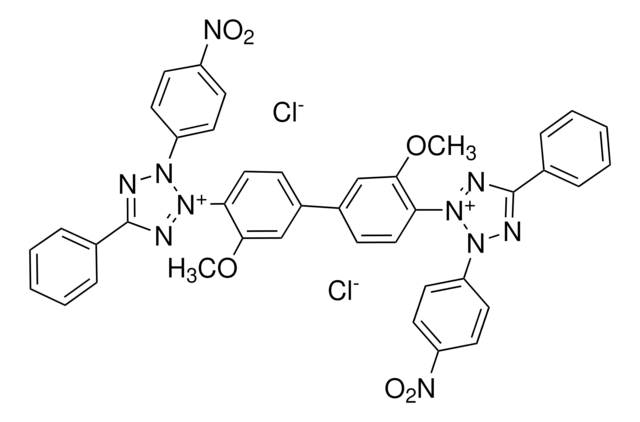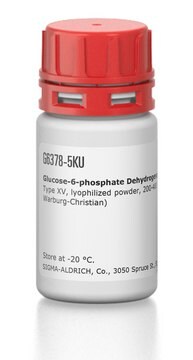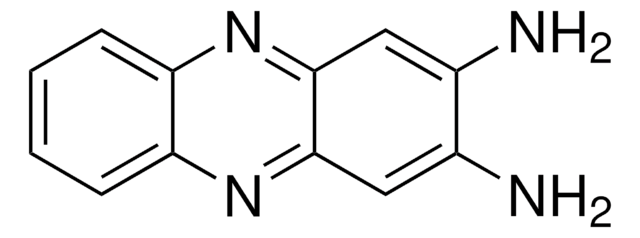P4544
Phenazine ethosulfate
≥95% purity, powder
Synonym(s):
N-Ethyldibenzopyrazine ethyl sulfate salt
About This Item
Recommended Products
product name
Phenazine ethosulfate, ≥95%
Quality Level
Assay
≥95%
form
powder
technique(s)
titration: suitable
solubility
ethanol: 50 mg/mL, clear
application(s)
diagnostic assay manufacturing
hematology
histology
storage temp.
−20°C
SMILES string
CCOS([O-])(=O)=O.CC[n+]1c2ccccc2nc3ccccc13
InChI
1S/C14H13N2.C2H6O4S/c1-2-16-13-9-5-3-7-11(13)15-12-8-4-6-10-14(12)16;1-2-6-7(3,4)5/h3-10H,2H2,1H3;2H2,1H3,(H,3,4,5)/q+1;/p-1
InChI key
VDJKJPMLWJWQIH-UHFFFAOYSA-M
Looking for similar products? Visit Product Comparison Guide
General description
Application
- in the spectrophotometric assessment of Plasmodium falciparum lactate dehydrogenase activity
- to study the use of the dye during culture of embryos on fetal and postnatal calf development
- to test and validate a fluorescence approach to quantify lipid content of individual bovine oocytes and blastocysts
Signal Word
Warning
Hazard Statements
Precautionary Statements
Hazard Classifications
Eye Irrit. 2 - Skin Irrit. 2 - STOT SE 3
Target Organs
Respiratory system
Storage Class Code
11 - Combustible Solids
WGK
WGK 3
Personal Protective Equipment
Choose from one of the most recent versions:
Already Own This Product?
Find documentation for the products that you have recently purchased in the Document Library.
Customers Also Viewed
plants
bovine oocytes and blastocysts
Protocols
Objective: To standardize a procedure for the recycling micro-assay of β-NAD and β-NADH
Our team of scientists has experience in all areas of research including Life Science, Material Science, Chemical Synthesis, Chromatography, Analytical and many others.
Contact Technical Service